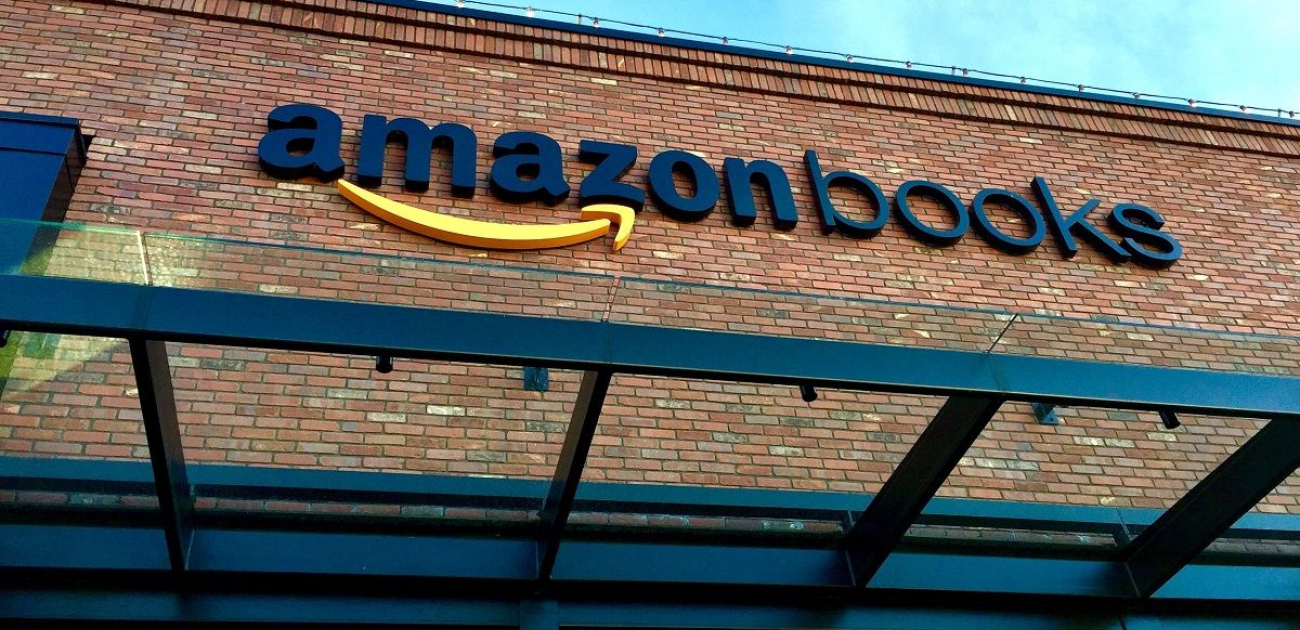Now Trending: Amazon’s Brick and Mortar Expansion of New Concept Stores
Although online shopping is extremely convenient, many consumers still want to touch and test out products before they purchase them. Since 2015, Amazon, with its first brick and mortar Amazon Books store, has made its way out from behind its consumers’ smart phones and onto their street corners to give consumers the shopping experience they are looking for. This expansion is seen as a direct response to increased competition from brick and mortar retailers who have combined e-commerce with their existing physical footprints. With a common theme of product curation, each type of Amazon store provides a different shopping experience.
Amazon Books: In 2015, Amazon opened its first brick and mortar store – Amazon Books. Now there are over 20 locations nationwide. The stores feature a curated selection of books rated 4 stars and above as well as customer favorites in categories such as toys, electronics, games, and home. At these stores, customers can also test drive various Amazon devices.
Amazon 4-star: Amazon 4-star stores are popping up throughout the country. These stores have a larger variety than Amazon Books stores and carry a rotating inventory of items rated 4 stars and above as well as popular local items. Amazon has incorporated features such as “Most-Wished-for” and “Frequently Bought Together” to product line-ups. Very large items and food are generally not sold at these stores, which are modeled upon traditional department stores with different sections for various goods, rotating seasonal displays, and tables dedicated to Amazon-branded products. In order to keep in line with Amazon’s sales models, price tags for each item are electronic so they can be updated in real time to display number of reviews and star ratings. Since the stores are dedicated to the display of items that customers love, they include third-party items such as Bluetooth speakers, which complete with Amazon branded products, such as the Echo in this case. In addition to selling products, Amazon also plans to use these stores to host community events such as a back-to-school gatherings.
Amazon Go: Amazon Go is already in Chicago, New York, San Francisco, and Seattle and there are plans to open 3,000 locations by 2021. If successful, the expansion would represent Amazon’s most aggressive brick and mortar expansion since its acquisition of Whole Foods. The stores feature no lines and a walk out shopping experience. Patrons enter the stores with the Amazon Go app, take products that are charged to the Amazon Go app and leave with no checkout. Sensors throughout the stores detect when products are taken from or return to shelves and keep track of those items in virtual shopping carts. Stores sell ready-to-eat food and grocery essentials. In addition, small version Amazon Go kiosks will operate in office lobbies and airports.
Amazon Pop Up: Seattle is joining Las Vegas, Los Angeles, Denver, Houston, and Chicago as the sixth US city to host Amazon’s latest concept, an “Amazon Pop Up” store. The Amazon Pop Ups have themes that rotate on an unfixed schedule featuring the latest trending merchandise sold by Amazon and interactive displays. Not all stores feature the same merchandise or displays at the same time. The stores are marketed as “physical extensions of Amazon.com.” The concept is to create themes to provide customers a “try before you buy experience.” Some past themes include Marvel’s Avengers, Holiday Toy List, Fisher Price “Let’s Be Kids,’” and Barbie’s 50th Anniversary. Currently Amazon Pop Up stores are branded as AmazonBasics Bedding Pop Ups where consumers can feel, touch and see AmazonBasics bedding in person before buying the products online.
New Grocery Concept: Amazon is also planning to open a new form of grocery store in California. Unlike Amazon Go stores, there will likely be human cashiers and the concept will be different from Whole Foods. These stores will instead compete in the traditional grocery store market, selling more mainstream items.
Amazon has already proved itself to be nimble with its brick and mortar concepts. In early 2019, Amazon discontinued its Pop-Up kiosk program in favor of expansion of Amazon Books and Amazon 4-Star. The offerings at these Pop-Up kiosks had been more limited and the kiosks were used as showcases for only Amazon devices.
With respect to the viability of these new stores, only time will tell which concepts will have staying power. However, one thing is certain. Amazon will keep morphing its stores and products to meet market demand, and is likely to be on the cutting edge of retail trends, whether ecommerce or brick and mortar.
Do you want more information?
 Cristina L. Addy
Cristina L. AddyCristina L. Addy is an Associate in the firm's Real Estate group. Her practice focuses on representing investors, developers, and lenders in connection with the acquisition, disposition, and financing of office, multifamily and retail properties.
